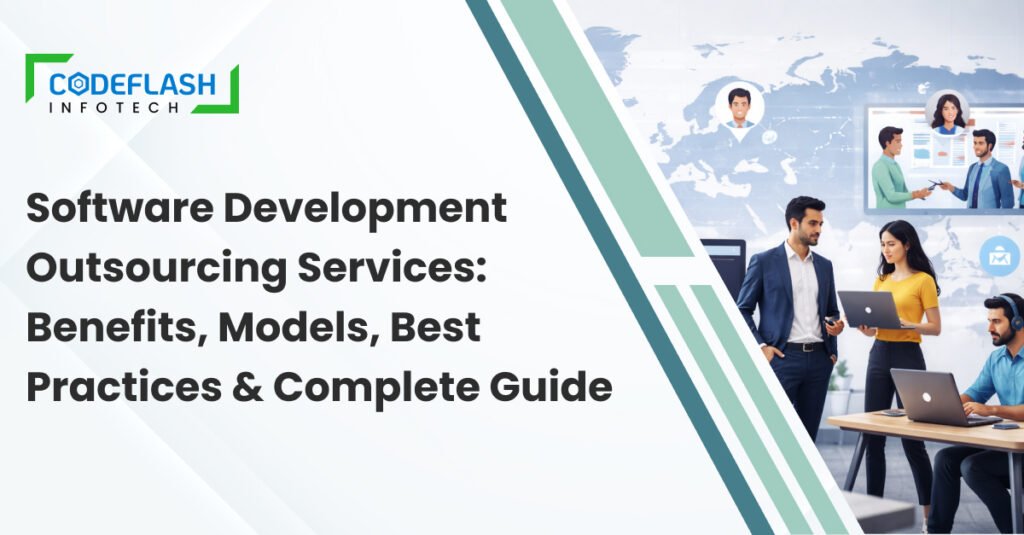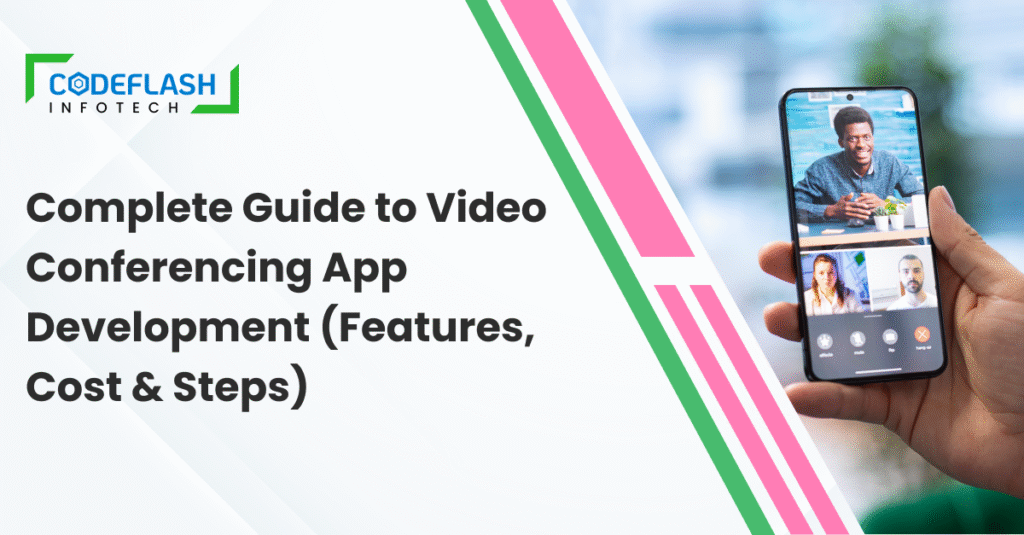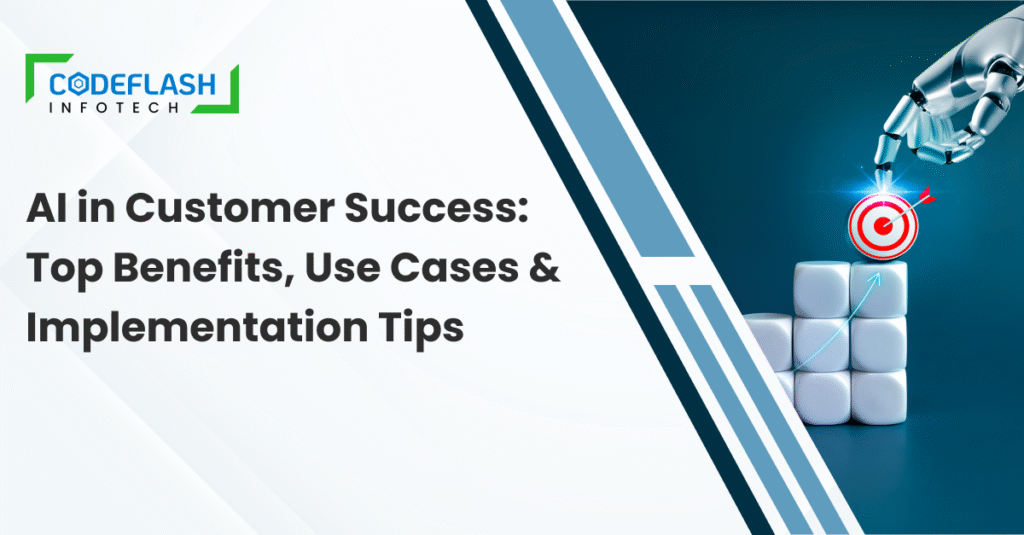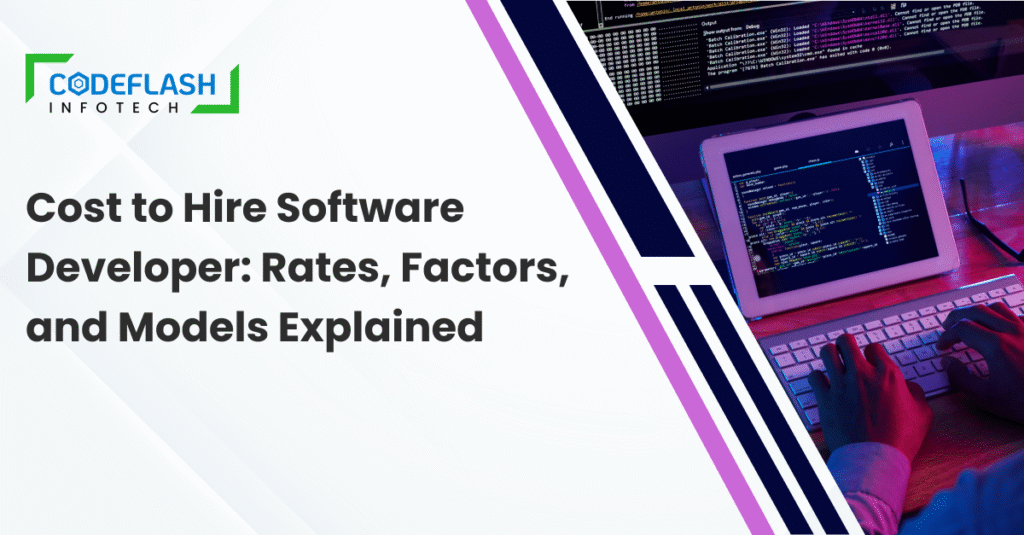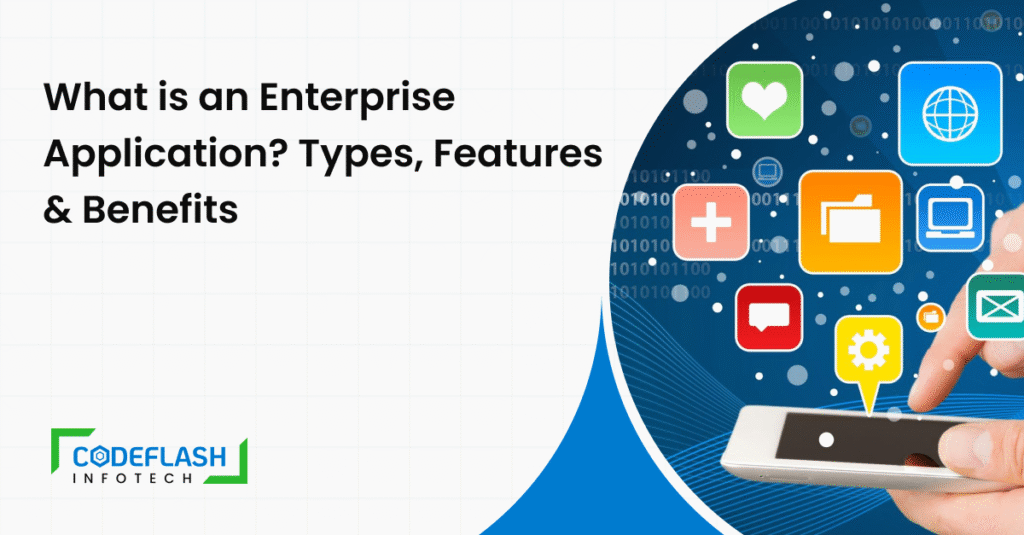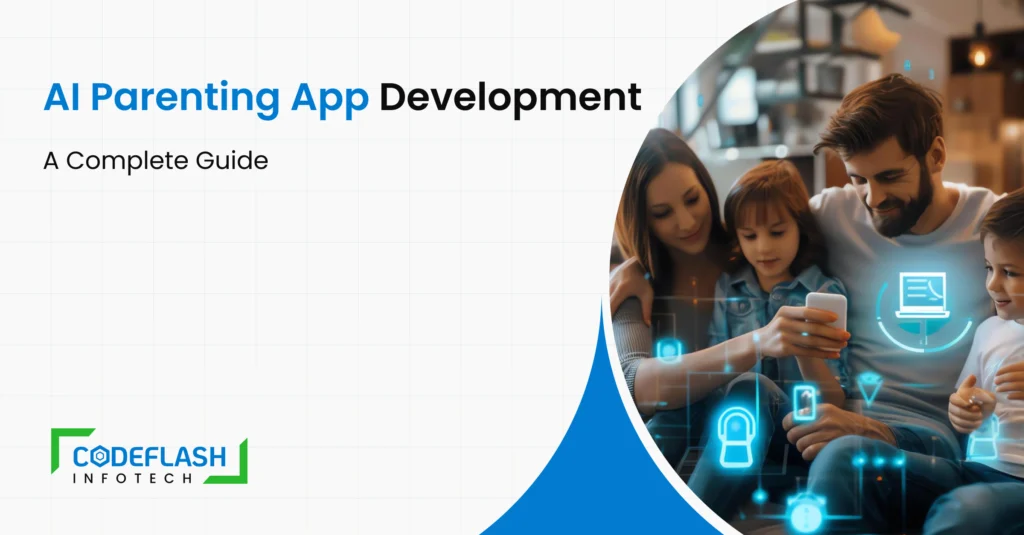
AI Parenting App Development Guide
14 NOVEMBER
The growth of AI in mobile app development, especially in the parenting app space, can be attributed to the way kids engage with technology today. According to Statista, the parental control software market is forecast to reach USD 4.3 billion by 2030, expanding at an 11% CAGR.
Modern AI parenting apps go beyond traditional monitoring tools. Instead of passively collecting children’s activity data, these apps use artificial intelligence to deliver real-time insights, personalised advice, and actionable feedback to parents.
AI-driven smart parenting platforms, such as daily tips apps for parents and AI-based family communication tools, make digital interactions not only safer but also more supportive and meaningful.
The increasing demand for custom mobile app development in this sector is evident among startups and enterprises in the UAE, driven by the nation’s strong child protection laws and digitally aware population.
Why Are AI Parenting Apps in Demand?
People are increasingly embracing parent–child AI apps not just to reduce screen time, but to support smarter decision-making in everyday parenting. With rising concerns around social media risks, excessive gaming, and disrupted routines, families are seeking technology that guides, informs, and helps them stay engaged.
AI-driven family assistants can provide real-time insights, personalized suggestions, and proactive support—making parenting easier in an increasingly connected world.
In the UAE, child-monitoring solutions and culturally aware, bilingual AI-guided parenting apps have immense potential. This growing demand opens the door for tech innovators to invest in AI Parenting App Development, creating smart parenting technology that addresses real, everyday challenges and needs.
Key Audience for AI Parenting Apps
AI parenting app development caters to a diverse range of users, including both individual families and institutions. Their primary clientele consists of parents who seek tools to monitor and manage their kids’ online and offline activities.
Particularly, time-pressed professionals looking for AI guidance can find parenting apps offer reliable, timely guidance. Potential adopters include businesses like daycare centres and schools. AI-powered family apps that bring together parents, kids, and educators on one platform can help them.
Organisations may seek customised parenting applications in locations such as the UAE to comply with local regulations and provide services that cater to the community’s needs. The market is broad and attractive due to the combination of institutional and family consumers.
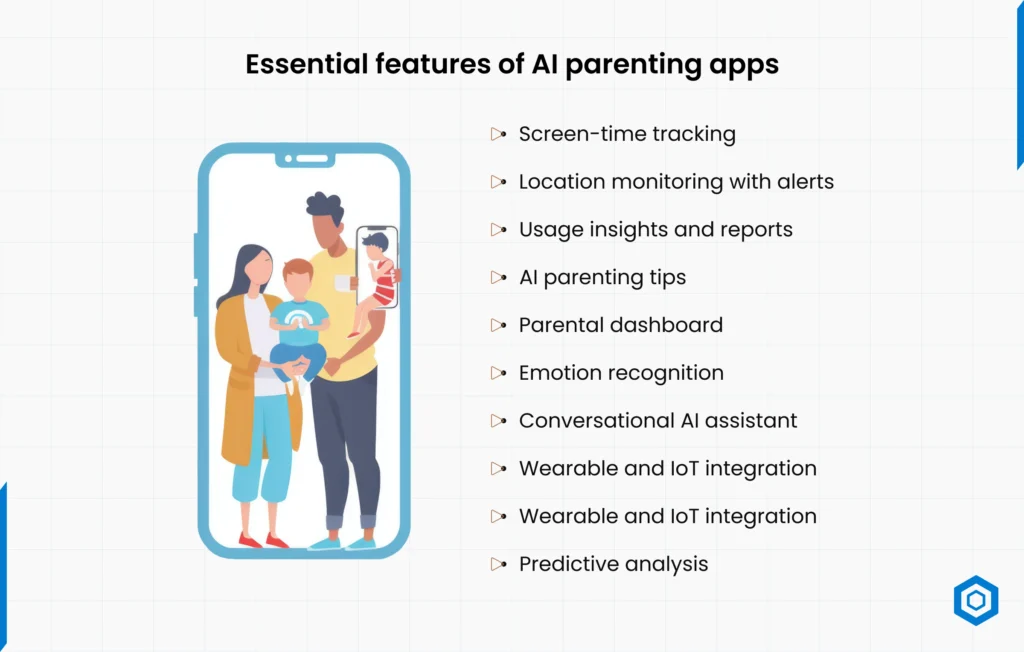
Essential Features of AI Parenting Apps
To create a successful AI parenting software, you need to incorporate the right features. Parents really want the app to do more than simply keep an eye on things; it should also offer advice and keep them interested.
- Screen-time tracking
Assists parents in tracking the amount of time kids spend using screen devices each day. It also provides app categories, usage hours, and potential for overuse. This allows families to set more discreet parameters, without unfairly punishing the child.
- Location monitoring with alerts
Parents can track their kids’ locations in real-time with GPS tracking. Parents can set up custom geofencing notifications to receive alerts when their kids enter or exit specific locations. This is also beneficial in homes with high traffic.
- Usage insights and reports
Provides in-depth analytics on internet use, browsing habits, and app preferences. Parents can also spot trends and patterns to steer children toward more educational or safer content.
- AI parenting tips
Get ideas from your age, how much you move, and the things you normally do. Parents receive tips every day on how to help their kids make better choices about their habits, screen time, and lifestyle. The method becomes more focused over time and gives better advice.
- Parental dashboard
All controls and information are located in one place for parents to access. It is incredibly easy to cover more than one child, and it allows for different profiles. The dashboard is fashionable, useful, and easy to use.
- Emotion recognition
AI is used to analyse tone, text, or usage trends to identify mood changes. Parents learn how their child is feeling and receive tips on how to support them. This provides parents with additional support in digital parenting.
- Conversational AI assistant
A built-in assistant that answers parenting questions instantly. Parents can ask about screen limits, healthy sleep routines, or safe online practices. This makes the app interactive and highly practical.
- Wearable and IoT integration
Links up with health trackers and smartwatches. Parents can monitor their child’s digital habits, sleep quality, overall health, and physical activity. This provides a comprehensive view of how a child lives.
- Predictive analysis
AI models analyse data to identify unusual behaviour or potential risks. Parents are warned early on about potential problems, such as children playing video games excessively or using the internet in unsafe ways. This preventative tool stops issues from getting worse.
Technical Architecture & Development Workflow
Teams are guided through the distinct phases of the app development process from concept to launch. Each step ensures that the app meets user expectations while staying reliable and compliant.
- Requirement analysis
Begin by studying the needs of parents and children, compliance requirements, and market opportunities. This stage defines must-have features, regional cultural expectations in the UAE, and the app’s business goals.
- UI/UX design
Create wireframes and interfaces that are intuitive and easy for parents to use. A clear layout for dashboards, notifications, and reports improves trust and makes the app more engaging. Effective AI parenting app UI/UX design ensures a smooth, user-friendly experience that helps families interact confidently and comfortably within the app.
- Backend and database setup
Build secure servers and databases to store sensitive information about children. Focus on performance, encryption, and scalability to support thousands of families without delays or risks.
- AI model integration
Add machine learning models to make suggestions, find out your mood, and send you tips before they happen. The models should improve over time, providing more effective AI parenting advice.
- Testing and quality assurance
Test each device and system thoroughly. User testing, security audits, and cultural validation ensure that everything functions as intended in markets like the United Arab Emirates.
- Deployment and updates
Launch the AI guidance parenting apps on Android, IOS, and web with ongoing tracking. New smart parenting technology features and frequent updates keep your interest.
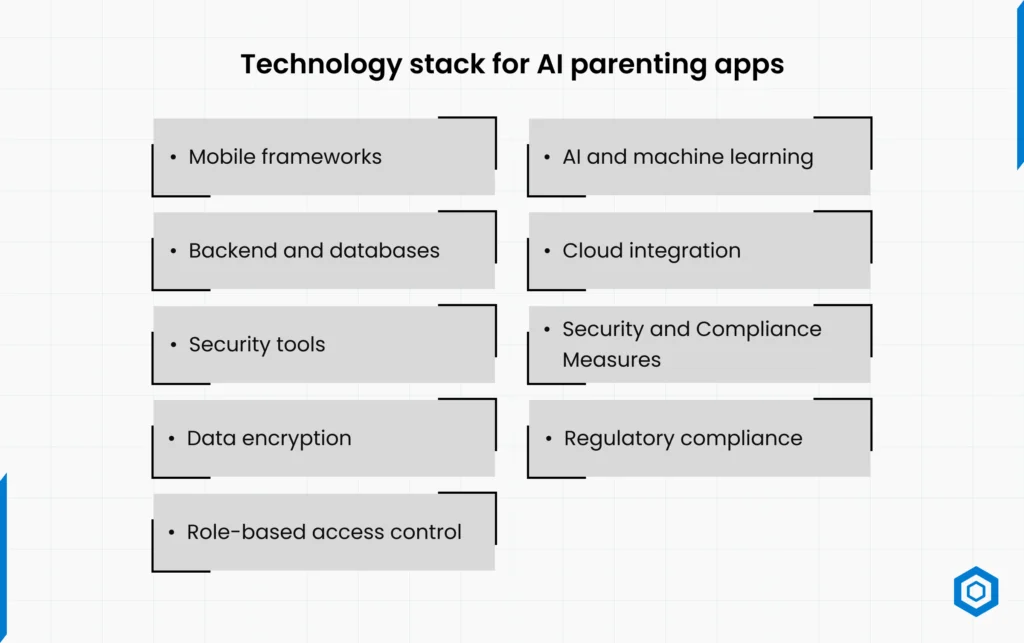
Technology Stack for AI Parenting Apps
Choosing the right technology stack ensures performance, speed, and safety. The stack combines mobile frameworks, AI engines, and cloud solutions.
- Mobile frameworks
Use React Native or Flutter for cross-platform. This saves time during development and provides users on iOS and Android with a truly native experience.
- AI and machine learning
You can use the TensorFlow, PyTorch, or OpenAI APIs to add smart features. With these frameworks, the app can provide AI-assisted parenting help that adapts to each child’s unique behaviour.
- Backend and databases
For the backend code, you can use Node.js, Python, or Java. For secure databases like PostgreSQL or MongoDB, use strict access controls to safeguard data.
- Cloud integration
Deploy on AWS, Google Cloud, or Azure for scalability. Cloud Integration ensures high availability and secure global access, which is especially important for UAE child monitoring apps in the UAE.
- Security tools
Add SSL encryption, multi-factor authentication, and parental approval flows. These measures protect sensitive family data, making parents confident in the app.
- Security and Compliance Measures
The software must adhere to high standards of privacy and compliance, as it contains data on children. Companies that want to gain the trust of their users must comply with both local and international regulations.
- Data encryption
Encrypt all communication between the app and server to prevent unauthorised access. This protects sensitive child data, including location and browsing habits.
- Regulatory compliance
Ensure you follow the rules for child protection in the UAE, as well as GDPR and COPPA. Families and government officials will trust you more if you meet these standards.
- Role-based access control
Let parents control their accounts and choose what information is shared. This ensures that only authorised family members can view the data.
Monetisation Models for AI Parenting Apps
Startups and businesses must determine how they will generate revenue from AI parenting apps early on to ensure their success. The best model should be affordable for families while also generating revenue for businesses.
- Subscription plans
Offer different feature sets on monthly and yearly plans, allowing customers to choose what works best for them. Monitoring may be part of basic plans, while premium plans give you access to more powerful AI features like recognising emotions.
- Freemium with in-app purchases
Provide free core features such as screen-time tracking and charge for extras. Parents can purchase add-ons, including detailed reports, additional child profiles, and enhanced safety alerts.
- Partnership and licensing
Collaborate with schools, childcare centres, or enterprises. A family AI solution can be white-labeled and licensed for institutional use, opening larger revenue streams.
- Advertisements (limited)
Integrate safe, family-friendly ads where appropriate. Ads should never disrupt the user experience and must strictly follow child protection guidelines.
Launch Strategy and Go-to-Market
A strong launch plan ensures the app reaches its target audience effectively. Both individual families and institutions should be addressed through customised outreach.
- Market research and localisation
Customise the app’s functionality, language, and regulatory compliance to meet local requirements and regulations. For instance, a custom parenting app UAE would need to respect local cultural values and offer bilingual support.
- Beta testing with families
Test with a cohort of parents to get early feedback before fully launching. This enables modifications to usability, alerts, and AI parenting tips apps that reflect real-world usage.
- Digital marketing campaigns
Promote through social media, app stores, and parenting blogs. Highlight benefits such as smart parenting technology and security to drive early adoption.
- Enterprise partnerships
Contact schools or family service providers. This ensures that many people use it and that it is reliable, as it is endorsed by well-known organisations.
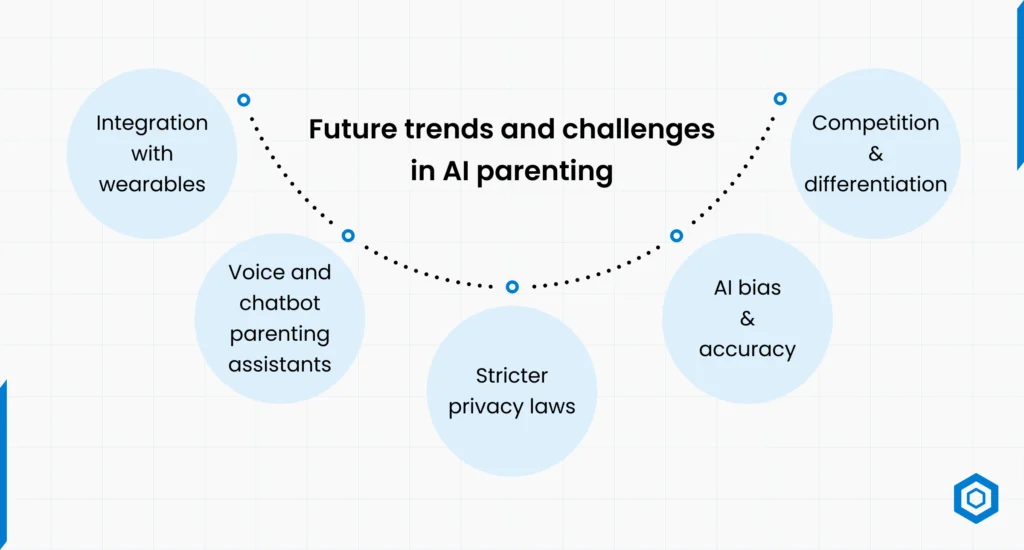
Future Trends and Challenges in AI Parenting
The future of Parenting app with artificial intelligence looks promising, but companies should also be prepared for challenges. Long-term growth will be influenced by shifts in AI, data privacy, and user expectations.
- Integration with wearables
Future apps will link with devices that monitor sleep, fitness, and health. This makes family AI solutions more holistic, combining physical and digital well-being.
- Voice and chatbot parenting assistants
Conversational AI will become standard in AI parenting tips apps, providing instant answers and routine reminders for busy parents.
- Stricter privacy laws
Regulations will only grow stricter as awareness increases. AI apps for parental controls require developers to prioritise compliance and security to maintain trust.
- AI bias and accuracy
It is essential to receive fair, accurate, and non-discriminatory advice. Smart parenting technology is something families will use only if it consistently helps.
- Competition and differentiation
As the market continues to flood, your success will depend on having something that sets you apart. If you can field personalised parenting apps that leverage safety, advice, and fun, you’ll stand out.
Why Choose Codeflash Infotech for AI Parenting App Development?
Codeflash Infotech can build a Parenting app with artificial intelligence that provides a safe, scalable, and user-friendly experience for families, ready to scale with enterprise when demand hits.
As providers of AI family apps, an AI parenting tips app, and custom parenting apps UAE, we enable them to create integrated platforms with monitoring-based guidance and compliance aligned with privacy laws.
From planning and design to deployment and ongoing support, Codeflash Infotech manages the full AI app development cycle. Our focus on security, cultural alignment, and continuous innovation makes us a trusted partner for creating reliable parental control AI apps and family AI solutions that meet modern parenting needs.
Conclusion
The future of parenting is smart tools that use AI to do more than just watch over kids. They’ll really help and give you advice. AI-powered family apps and parental control apps are just two examples of how technology is improving the safety, health, and connectedness of families.
Startups, enterprises, and tech leaders exploring AI-driven parenting app development have a clear opportunity to meet the growing demand.
With the right partner, such as Codeflash Infotech, businesses can launch apps that strike a balance between innovation, compliance, and family trust, thereby capturing a strong position in this expanding market.
Frequently Asked Questions
An AI parenting app is a smartphone or web application that utilizes AI to monitor children’s activities, offer personalised guidance to parents, and assist them in establishing healthy habits.
Some of the most useful tools are tracking screen time, location alerts, usage reports, and parenting tips powered by AI. It would be even better if the app had more advanced features, such as the ability to recognise emotions, make predictions, and connect to wearable technology.
Yes, but only if it’s done right. Apps must comply with the rules governing the protection of personal data, such as GDPR, COPPA, and the UAE child protection standards. Encryption and parental permission are important safety measures.
Table of Content
Why Are AI Parenting Apps in Demand?
Key Audience for AI Parenting Apps
Essential Features of AI Parenting Apps
Technical Architecture & Development Workflow
Technology Stack for AI Parenting Apps
Monetisation Models for AI Parenting Apps
Launch Strategy and Go-to-Market
Future Trends and Challenges in AI Parenting

